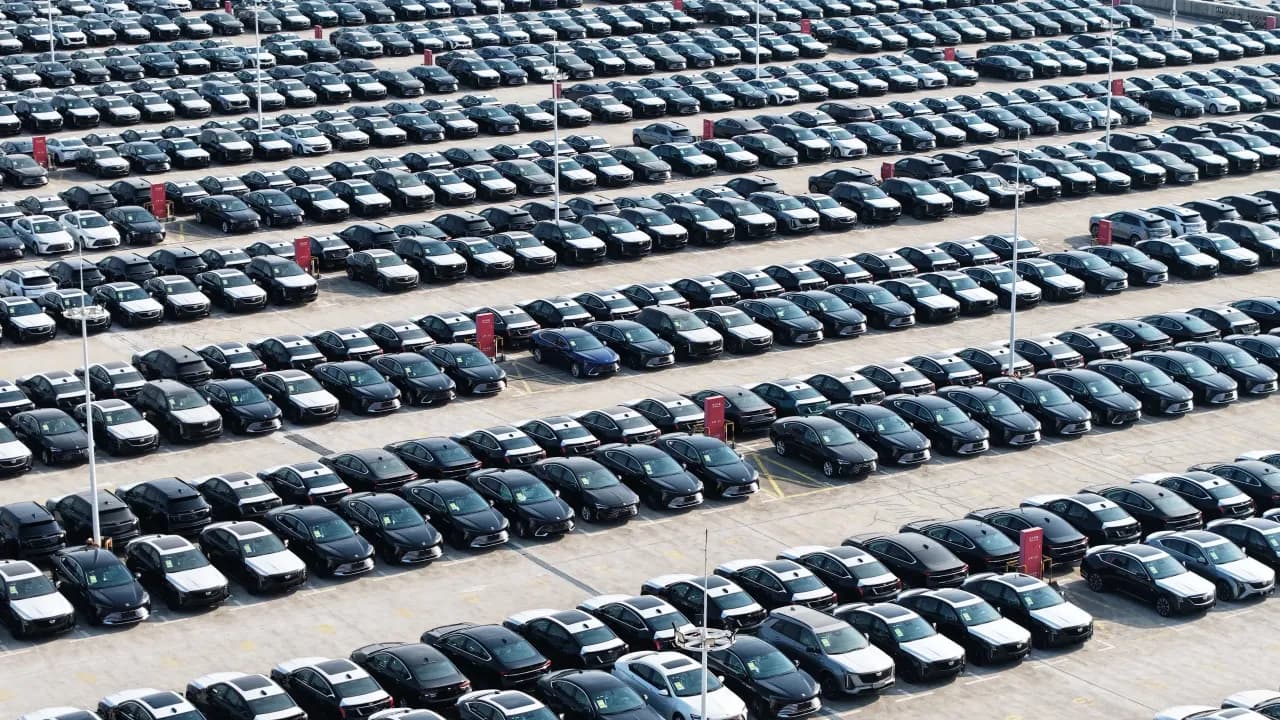- Ottawa reduced GM’s tariff-free import quota by 24.2% and Stellantis’ by 50% after both automakers scaled back or canceled production plans in Ontario.
- The government said the companies’ decisions breached their commitments to maintain Canadian manufacturing under the auto remission framework.
- GM ended BrightDrop van production in Ingersoll, while Stellantis scrapped plans for a Jeep Compass plant in Brampton, putting thousands of jobs at risk.
Canada’s federal government said on Thursday that it will significantly reduce the tariff-free vehicle import quotas of General Motors and Stellantis NV after the automakers scaled back their manufacturing presence in Ontario.
Under the decision, GM’s annual remission quota will be cut by 24.2%, while Stellantis’ quota will be reduced by 50%, the Department of Finance said in a statement.
Canada had already imposed 25% counter-tariffs on U.S.-made vehicles in April as retaliation for U.S. President Donald Trump’s auto import levies. Under the remission framework introduced at that time, automakers were allowed to import a limited number of vehicles tariff-free if they maintained domestic production and investment commitments.
The latest cuts mean a larger share of GM’s and Stellantis’ U.S.-built vehicles will now be subject to the 25% tariff, after both automakers scaled back or canceled Canadian manufacturing plans.
Finance Minister Francois-Philippe Champagne and Industry Minister Melanie Joly said the reductions follow “unacceptable decisions” by the companies to reduce or cancel production plans in Canada.
“We are deeply disappointed with the production changes recently announced by General Motors and Stellantis,” Champagne said. “These unacceptable decisions are in contravention of their legal obligations to Canada and Canadian workers, which is why we are reducing their import remission quotas.”
Production Cuts Trigger Penalty
The cuts come after GM announced it would permanently end production of its BrightDrop electric vans at the Ingersoll, Ontario, plant, casting doubt on the site’s future, and scale back operations at its Oshawa facility.
Stellantis, meanwhile, halted plans to build the Jeep Compass SUV at its Brampton, Ontario, assembly plant, a move that threatens around 3,000 direct jobs. The company’s decision to move Compass production to the U.S. drew criticism from Ottawa, which has previously provided financial incentives to support Stellantis’s operations in Canada.
Both automakers were beneficiaries of Canadian government assistance during the 2009 industry bailout and, more recently, received support to retool facilities for electric vehicle production.
Government Defends Auto Workers
Industry Minister Mélanie Joly said the measure reflects the government’s commitment to protecting auto jobs and ensuring that companies that benefit from tariff relief uphold their promises.
“We will always defend and protect Canada’s auto industry and its workers — they deserve nothing less,” Joly said.
Canada’s auto sector, centered largely in Ontario, employs about 125,000 people and represents roughly 8% of the nation’s manufacturing GDP. The industry produced 1.3 million light-duty vehicles in 2024, of which 1.1 million were exported to the U.S.
Stocktwits Traders Stay Upbeat On Automakers
On Stocktwits, retail sentiment was ‘bullish’ for Stellantis amid ‘low’ message volume, and ‘extremely bullish’ for General Motors amid ‘extremely high’ message volume.
Stellantis’ stock has declined 12% so far in 2025, while GM’s stock has risen 27% over the same period.
For updates and corrections, email newsroom[at]stocktwits[dot]com.<
